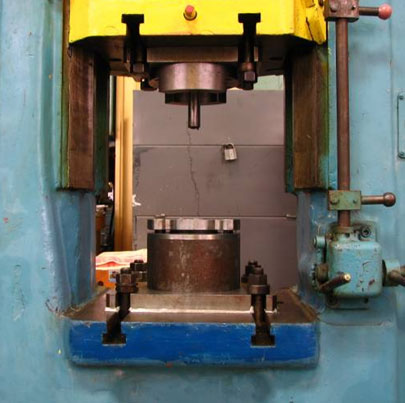Creation of theoretical bases of resource saving technologies of isothermal forming of thin-walled elements of mechanical engineering in wide temperature range and velocity deformation
Based on generalized theoretical results of visco-plastic flow of metal in different aggregate (solid and liquid-solid) states under a wide range of temperatures and strain rates the relationship of the isothermal load parameters, structure and physic-mechanical properties of the material extruded from thin-walled workpieces elements that have a high degree of approximation of their shape to the shape of the details (accuracy) was obtained. A general theory and generalized approach for the calculation process of forming structurally heterogeneous bodies was created. Deformation and fracture mechanics of structurally heterogeneous bodies was experimentally and theoretically confirmed. Numerical simulation of forming of thin elements were carried out to confirm the theoretical models. Mathematical models of processes of deformation by pressing, drawing and extrusion in large shear strains was experimental confirmed. The accuracy of calculation was ensured by using of extreme energy principles. Generalization of theoretical and experimental results provided the technological development of recommendations and propositions as for new technical solutions for the implementation of isothermal forming at a wide temperature range and velocity of deformation of thin-walled elements of mechanical engineering. The main results of theoretical and technological developments were tested at the enterprises of aviation branch of. The implementation of results confirmed by relevant acts.

| Attachment | Size |
|---|---|
| 644.1 KB |




